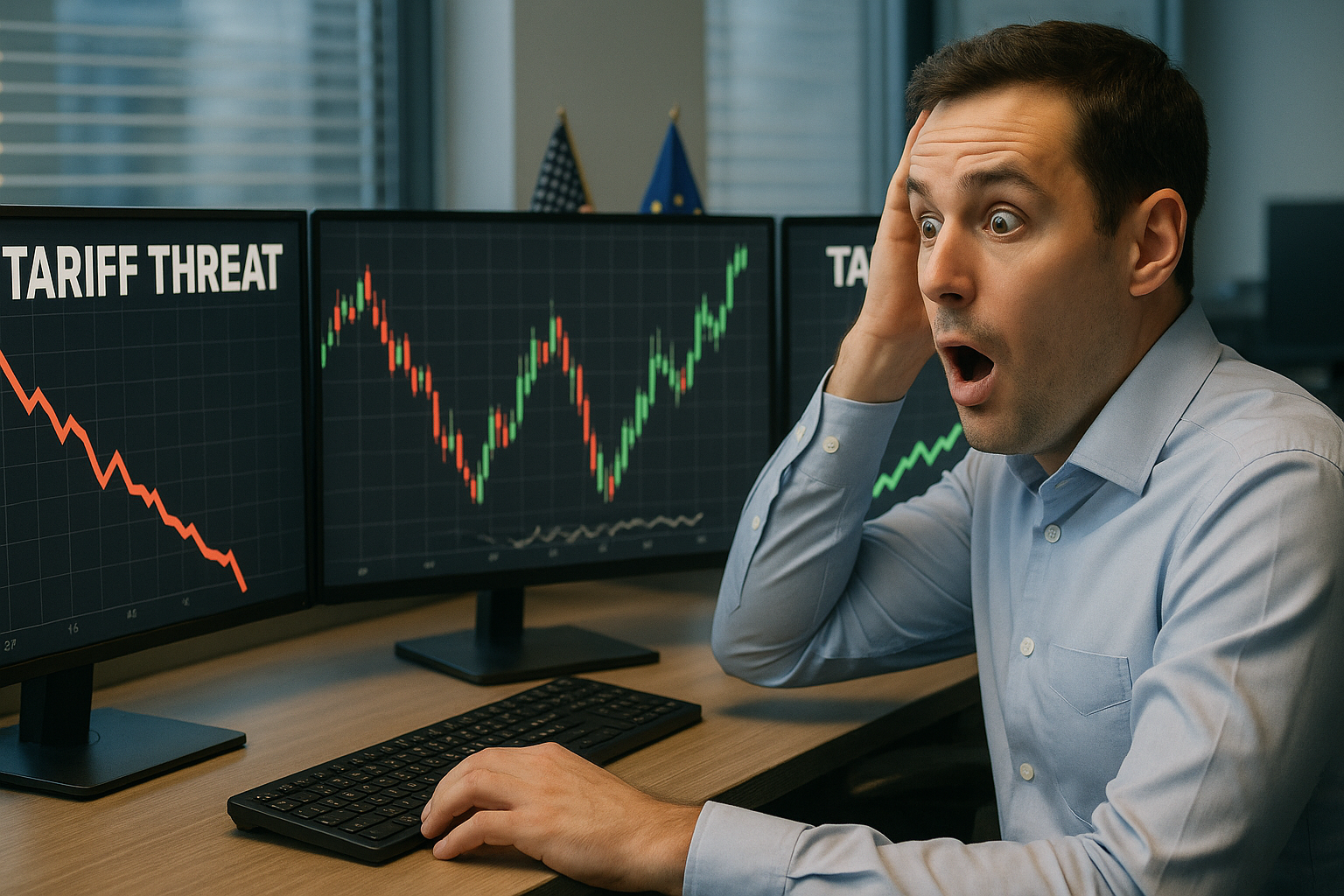The markets are on a tear today after Trump backpedaled on his threat to slap 50% tariffs on European goods. And let me tell you—the whiplash effect has been enough to make veteran traders reach for their neck braces and ibuprofen.
Here's the rundown: Last Wednesday's Treasury auction was a disaster (there's really no sugarcoating it). Bonds sold off hard, yields shot up like a rocket, and markets tanked accordingly. Then Trump—because apparently we didn't have enough to worry about—threatened Europe with massive tariffs on Friday, sending already nervous markets into yet another nosedive.
But now? He's walked it back, and the markets haven't just recovered—they're partying like that whole debt crisis thing was just a bad dream after eating too much spicy food before bedtime.
So what the hell is going on here?
I've been covering market psychology for over a decade, and I could give you the textbook explanation involving economic indicators, recession probabilities, and the delicate dance between fiscal and monetary policy. But honestly? Markets are basically functioning as a giant mood ring worn by a teenager with hormonal mood swings.
Look, markets don't actually trade on news—they trade on shifts in narrative. The Treasury auction birthed a debt crisis storyline. But narratives need constant feeding, and our brains are hardwired to fixate on whatever threat feels most immediate and visceral.
When Trump tossed the tariff bomb into the conversation, market attention pivoted instantly from "oh no, too much debt!" to "dear god, not trade wars again." And when that immediate threat evaporated? The relief was so overwhelming that it completely overshadowed any lingering anxiety about our fiscal train wreck.
Nothing—and I mean absolutely nothing—has changed about our debt trajectory since last week. Treasury still needs to issue an unholy amount of bonds. The deficit remains stubbornly massive. Moody's hasn't called Yellen with a cheerful "just kidding about that negative outlook!"
But markets, God love 'em, have the attention span of my golden retriever when I'm holding his favorite squeaky toy.
There's also what I've come to call the "rubber band effect" after years on the trading floor. Markets stretch too far on bad news, then snap back with equal force when the pressure releases. Throw in frantic short covering (traders who bet on declines having to buy to close positions), and you get these exaggerated rebounds that seem divorced from reality.
I've noticed something else, too. Markets are terrible at processing multiple crises simultaneously. It's like asking someone to solve differential equations while being chased by a bear—eventually, they focus exclusively on not becoming bear lunch and forget the math entirely.
Crisis fatigue is another factor at play. After living through a pandemic, inflation spikes, wars, and political chaos that would make House of Cards writers blush, the market's crisis muscles are simply exhausted. Each new threat produces a smaller reaction, and recovery times accelerate. We're developing collective calluses.
(And don't get me started on the wishful thinking component. Nobody—and I mean nobody—wants to believe we're actually facing a debt crisis, because the implications are too terrifying to contemplate.)
The irony that seems lost on today's jubilant traders? If Trump wins in November, those same tariffs are absolutely coming back, probably with friends, alongside tax cuts that would make our deficit situation even worse. So we're essentially celebrating the temporary absence of a policy that might return with a vengeance in months.
Which seems... suboptimal.
Next time some finance professor drones on about "perfectly efficient markets," just show them a chart of the past week. The market isn't discounting the future—it's treating each day like a fresh episode of a financial soap opera with amnesia about yesterday's plot twists.
As for that pesky debt crisis? Don't worry—we'll remember it exists during the next Treasury auction that goes sideways. Until then, we'll keep pretending everything's fine.
After all, denial isn't just a river in Egypt. It's Wall Street's favorite swimming pool.




